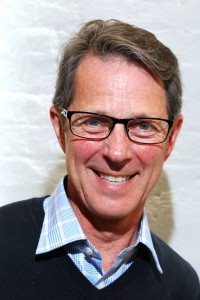Heckscher & Company – a brief history.
The story of this small family business is so entwined with the history of piano making in the UK, that the reader will hopefully forgive me for delving into a little of what was happening back in the “boom” times of the piano industry.
Heckscher & Company was established in 1883 by Siegmund Heckscher who had arrived in London from Hamburg some years before. In the 1880s the motor car and aeroplane had not yet been invented. Pianos however, were big business. In those days, long before television and computers were even thought of, many households possessed a piano.
Pianos were always heavy items which were difficult and expensive to transport. Camden Town, the area of North London where we were based for over one hundred years, had some decisive advantages as a piano manufacturing base. It had a good transport infrastructure with the Grand Union Canal and the relatively new railway system on the doorstep. By the late nineteenth century, well over one hundred piano factories had sprung up in Camden Town and neighbouring Kentish Town.
Some of the local factories were giants of the industry at that time, such as Collard & Collard, Brinsmead, Chappells, and Challens. These larger concerns would have made many components “in house”, but there were also many smaller manufacturers who bought in their components from other local factories who made such things as actions, hammers, keyboards and strung backs. Herrburger Brooks, the action makers, were another of these other local factories.
And so it was that Siegmund’s son Leo, my grandfather, brought the company to the Bayham Street premises, in the heart of all this manufacturing activity, which it occupied until very recently,
The eminent piano historian, Alastair Laurence, tells of a local pub, The Old Mother Redcap (now re-named The World’s End), which was just 200 metres from our warehouse. This was a virtual labour exchange for the piano industry. Here the factories would come to hire both skilled and unskilled workers who would gather there in the hope of picking up work.
Sadly all the piano factories and component manufacturers are now long gone and for many years we were the only remnant of a once thriving industry. Over the years there were many difficult periods. At the time of the great depression survival was paramount and many of the factories ceased trading. My father left school in 1931 and was told to go and do something else as there was “no future in the piano industry”.
Leo, always referred to by my father and uncle as “The Governor”, worked on well in to his eighties, until he died in 1958. By now the company, still tiny with a total workforce of only four or five was run by my uncle Derek, and my father, Roy (who had finally joined the company in 1948). Following Leo’s death, they just managed to survive the prohibitive death duties (inheritance tax) which applied at that time, and threatened the survival of any business on the death of its principal owner. But they managed to continue trading, and in 1971, I joined the family business.
Over the next 43 years we continued to trade from Bayham Street. This period saw massive changes in the piano industry as one by one the UK manufacturers ceased trading. Piano restoration also diminished, particularly following the advent of incredibly cheap new Chinese instruments. Undoubtedly digital pianos have also affected the “traditional” acoustic piano market, but most piano teachers still seem to encourage their pupils to go down the acoustic route once a certain level has been attained.
By 2014 trading conditions had become impossible, and the sad decision was taken to close the Bayham Street warehouse which had been a happy home for over 100 years. I now operate Heckscher & Company from home.
The underlying policy continues unchanged: I strive to supply my customers with the best products supported by the best service.

Martin Heckscher